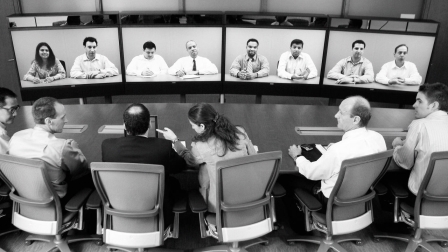How To Answer, “Why Do You Want To Work Here?” On A Job Interview
One of the most common interview questions job seekers tend to be asked is, “Why do you want to work here?” It can be a tricky question, and nailing it requires showing that you’ve done more than just hastily read up on a company. You need to prove your knowledge is deeper than that, that you’re passionate about the organization’s work, and that you’re the very best person to help take it to the next level. Here’s what to do.
Show You’ve Gone Beyond The “About Us” Page
Many people can do a decent job of talking about their skills, experience, and motivation, but still fail to make a convincing case when talking about a prospective employer’s actual business. Recruitment experts usually find that candidates often focus on what the job will do for them, rather than what they will do for the company. These candidates need a simple shift in focus.
Genuine enthusiasm for the company and its business is a powerful way to get the interviewer to take an interest in you and your application, so you should treat this part of the question as an opportunity to show the interviewer that you’ve done your research on the company.
Make sure that your research is current and relevant to the question and shows that you’ve been keeping abreast of the company’s development plans. Setting a news alert on a search engine for the company you’re interviewing for can be a great help in the days preceding your interview.
You could choose to refer to a recent piece of news regarding the company’s success or its expansion plans, then explain how you would like to contribute during this exciting period of growth. What you say is part of the story, but most important is to let your enthusiasm shine through; it’s all about showing you want to commit to that company, and that it’s not just a job.
If you’re being interviewed by your prospective boss, focusing on your personal contribution has particular power; if you’re looking forward to helping the company succeed, then you’ll also be making your prospective boss look good.
Connect What Motivates You To The Job Description
Some hiring managers will ask you directly what motivates you to do great work in order to see whether you’re just in it for the paycheck. This is a great opportunity to explain why this job at this company, and not just a job at any company, is what you’re after.
Most of us go to work each Monday morning, at least in part, so we’ll be paid by the end of the month. But as both you and your potential employer have probably discovered, people who are motivated solely by the money are rarely the most enthusiastic, productive, or successful members of the team. The jobs you excel at will be ones that really get you buzzing—that you find you enjoy in some way and have some intrinsic motivation for. Your interviewer wants to know if this job will be one of those jobs for you.
At this stage in the interview game, you should have a solid idea of what you want out of your next career move, what sort of jobs and tasks energize you, and, hopefully, why this particular opening fits those requirements. Now all you have to do is explain what drives you to the interviewer, being sure to highlight why this job matches your motivations. So if you’ve prepared properly, connecting those dots should be relatively straightforward, as long as you avoid these common pitfalls:
Excessive flattery. You may be interviewing for your dream job, but coming across as a complete fanboy (or -girl) is only going to make you sound desperate. No job is perfect and no one likes a fawner. Make sure the interviewer knows you think the role is a great fit for your motivations, but don’t overdo it.
Trivial motivations (at least in the eyes of the employer). You may be looking for a shorter commute, but this isn’t the time to mention it. Employers want you to be intrinsically motivated by the work itself, so avoid discussing other outside factors like slight pay increases, convenient hours, or plain boredom at your old job.
The appearance of random chance. Your resume might represent a whole lot of trial and error or be full of jobs you took simply because they were available at the time and seemed okay, but companies don’t like to think of themselves as the latest random employer you stumbled upon. They want you to want to work for them for carefully thought-out reasons, so make sure that when you’re talking about your career motivations you emphasize a rational progression from job to job—a coherent career story—that this latest company fits into.
Put that all together, and what does a good answer look like? A thoughtful answer that lays out how your personal motivations and the specific characteristics of the job line up. Here’s an example:
I went into IT straight out of college, and while I enjoyed using my skills helping people in the organization solve their computer problems, what really motivated me was when I got to work on a project a couple of years later assessing which software tools to purchase and how we could customize them to meet our own needs. I found that I really loved translating people’s requirements into technical solutions. It was like working out the answer to a fun puzzle and it made my day when they told me how much easier the new software made their jobs. Plus, the challenge pushed me to keep learning, which is something else I find holds my interest at work. That’s when I decided I eventually wanted to move into a role that combines IT and people skills.
This article is adapted from 101 Job Interview Questions You’ll Never Fear Again by James Reed, published by Plume, an imprint of Penguin Random House LLC. Copyright © 2016 by James Reed. It is reprinted with permission.
Fast Company , Read Full Story
(14)













